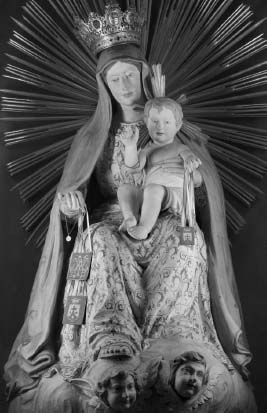ChristianityReligious Beliefs |
Why is the Virgin Mary important to Christians? |
Mary, the mother of Jesus, occupies a preeminent position in the theology of the traditional Eastern and Western churches. Information about her life is extremely limited (Matthew 1 and 2; Luke 1 and 2). It is clear that Matthew and Luke believed that Mary’s conception of Jesus was miraculous, involving no human paternity, and that her son was the Messiah expected by Israel. Mary belonged to the house of David (Luke 1:26), was engaged to a man called Joseph (Matthew 1:18), and lived in Nazareth in lower Galilee (Luke 1:26). The Gospel of Luke relates that an angel of God announced that she, although a virgin, would conceive the son of the “Most High,” to be named Jesus, and that he would found a new Davidic kingdom (Luke 1:31-33). Mary consented. When Joseph discovered that Mary was with child, he wished to dissolve the engagement quietly. In a dream, however, God’s angel admonished him to marry Mary because the son she would bear was the result of divine intervention (Matthew 1:19-21).
The dates of Mary’s life can only be surmised. Researchers place the birth of Jesus between 7 and 4 B.C.E. Granting Mary a minimal age of 16 to 18 years at the time of Jesus’ birth, this would place her birth at sometime between 22-20 B.C.E. There is no precise information as to her death. At the Council of Ephesus in 431, Mary was proclaimed the “Theotokos” (Greek, God-bearer), or mother of God. Her position was further defined in the Roman Catholic Church, which in 1854 stated as an article of faith that Mary had been conceived without the original sin that affects all humanity. In 1950, Pius XII declared that at her death Mary’s body had not corrupted in the grave but that God had taken both her body and soul into Heaven.

A statue of the Virgin Mary and Jesus in St. Mark’s Anglican Church in Florence, Italy.
